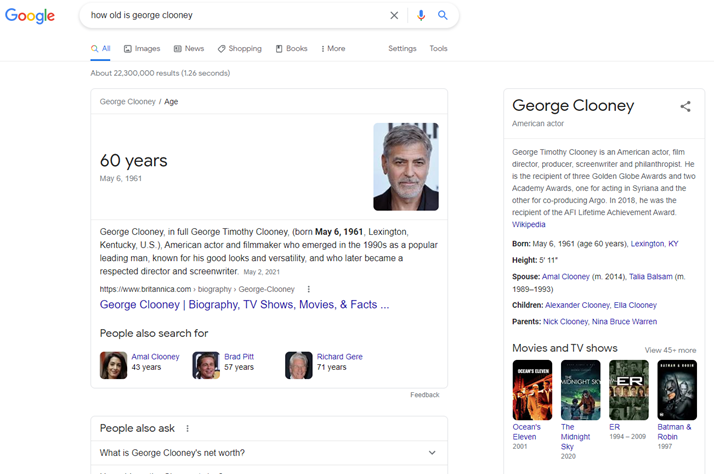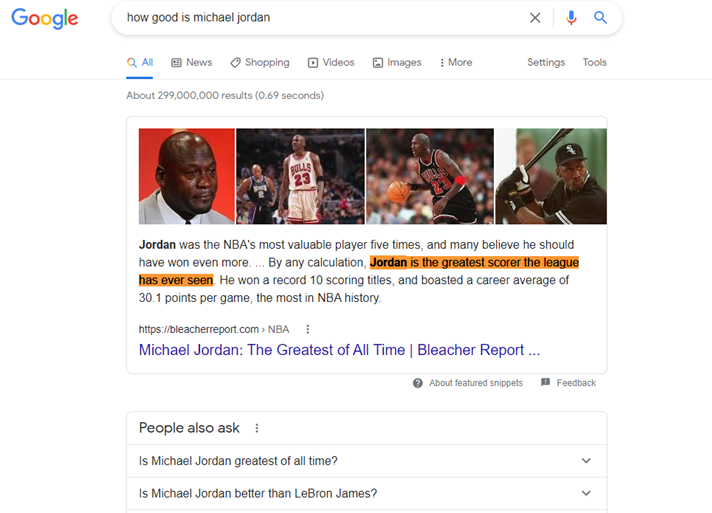Is it time to rethink the operating model for search applications? What search application users want:
“I just want search to work like Google.”
Is it time to rethink the operating model for search applications? What search application users want:
“I just want search to work like Google.”


Search applications have existed in the enterprise since the 1990s in the form of text search for document or content management systems. The bad to mediocre search experience was tolerated by users. Until Google came along. Google delivered such a simple, reliable and consistent search experience that the single mandate from users was simple, whether you were talking about search on an intranet, a website, or a search application.
But delivering on this goal has become increasingly difficult for enterprises. Let us explore why this is the case, and why it is time to rethink existing operating models for delivering search application services.
By their nature, search applications need to look under every rock to find the right content and index it. This means integrating with hundreds of 3rd Party software platforms, websites, file systems and databases, many of which have complex security models and APIs. Once the content is accessed, we need to crack open the documents and consider how to process and index them so they are optimized for searching.


The challenge of consistently delivering excellent search experiences.
Enterprise IT departments, committed to optimal search experiences, spend millions on commercial search engines, and often just as much to implement a solution. Open-source search engines like Solr and Elasticsearch revolutionized and now dominate the space. However, they still require hard-to-find search engine experts to build and run search applications. Without constant care and feeding of the applications, the user experience invariably degrades over time.
Google (plus others including Microsoft and Amazon) are also constantly redefining what it means for search to “work like Google”. The search experience is no longer just about typing in a few keywords to get a list of results, hopefully ranked by relevance. Today’s users have been conditioned to have search applications behave essentially like a Question Answering system, taking natural language queries and delivering results in the form of featured snippets, related images and entity cards. Users also value “People Also Ask” features, which suggest related alternative queries.
In this first example of a common question-like query, “How old is George Clooney”, Google not only provides an exact answer (60 years), but also “People also searched for”, “People also ask”, and a knowledge panel on the subject.
These results – now the expected search engine norm – were presented in seconds and reflect Google’s use of Natural Language Processing (NLP) (to interpret the query), AI / Machine Learning (to infer related questions through the behavior of similar users), and knowledge graphs (to quickly provide the exact answer as well as the information card of related facts).




Perhaps an even more subtly impressive example is the query “How good is Michael Jordan”. Rather than a specific fact (like age), the user is asking Google for a more subjective opinion.
This experience effectively transforms the traditional search experience for users into an insight or knowledge discovery experience. And while there continues to be much room for improvement and personalization, it is the new experience that users want.
The challenge for companies, then, is to deliver on this expectation with limited expertise and resources. One approach has been to leverage the increasing portfolio of cloud-hosted services offered by the major cloud providers.
Cloud-hosted search solutions are not enough.
- Content ingestion and processing (from a wide variety of data source connectors) to enrich content of various types to facilitate indexing.
- Implementing the latest NLP and machine learning technologies to better interpret natural language queries that are spoken or typed into a search application.
- Implementing NLP, entity extraction and machine learning technologies to “understand” and classify documents, and to extract “answers” to queries from them.
- Implementing and populating knowledge graph databases to facilitate “question and answer” user interactions.
Different use cases require further expertise.
- Website search for e-commerce
- Website search for support portals
- Website search for government portals
- Website search for information publishers
- Search-based applications (e.g. Uber, Google Maps, etc.)
- Enterprise search for general intranets
- Enterprise search for niche intranets (research portals etc.)
Evolution of “Search as a Service” to a full-service operating model
As with any other decision about a managed services approach to IT infrastructure or business applications, enterprises have to ask themselves these questions when it comes to search applications:
- How critical is search to our business?
- Is search one of our organization’s core competencies?
- Do we have, or can we afford to retain the expertise to implement and maintain state-of-the-art search?
Are you ready to entrust your search bar to a full managed service provider?
Depending on your answers to these questions, perhaps it is time to consider an operating model where “search as a service” means entrusting your ENTIRE search bar – from ingestion, to query, to answer – to a technology and services firm that can deliver the user experience you want for your customers and employees. We call this operating model SearchOps™.
While that idea may seem far-reaching, consider that:
- Cloud-based infrastructure providers have made private data centers more or less obsolete.
- Software as a Service exploded as an industry because companies were willing to entrust providers like Salesforce to operate their entire CRM and sales automation applications.
- Many enterprises – regardless of size – now fully entrust third-party service providers for payroll, benefits, and accounting services.
Evolution of “Search as a Service” to a full-service, Business Process Outsourcing (BPO) operating model
- How critical is search to our business?
- Is search one of our organization’s core competencies?
- Do we have, or can we afford to retain the expertise to implement and maintain state-of-the-art search?
In summary, Pureinsights believes Search as a Service is not just about solving the problem with a “hosted search solution”.
- A “full service” solution which includes people who know search to run the software, content ingestion, tuning, search quality analysis, and constant improvements to the user experience.
- A flexible, modular architecture that allows you to leverage the technologies of your choice, whether it be a new or existing investment.
- Experts that understand not only the latest in search technologies, but also natural language processing, AI / machine learning, and knowledge graphs.
- All wrapped into a single monthly fee with metrics for performance measurement. That is different to the regular “search as a service” provider.
Pureinsights believes this is the evolution of Search as a Service.
We are ready to partner in this new operating model with companies for whom search is as a core business function, but not a core long-term competency. We also understand that it may take some time for your organization to assess whether or not you are ready to adopt a new trend in how you manage your search applications.
Learn more about our SearchOps™ Managed Services, or get started with a Search Application Assessment, where we examine the current state of your search applications and help you develop a roadmap for improving them. If and when that roadmap leads you to a shared vision of Search as a Service, Pureinsights will be ready.